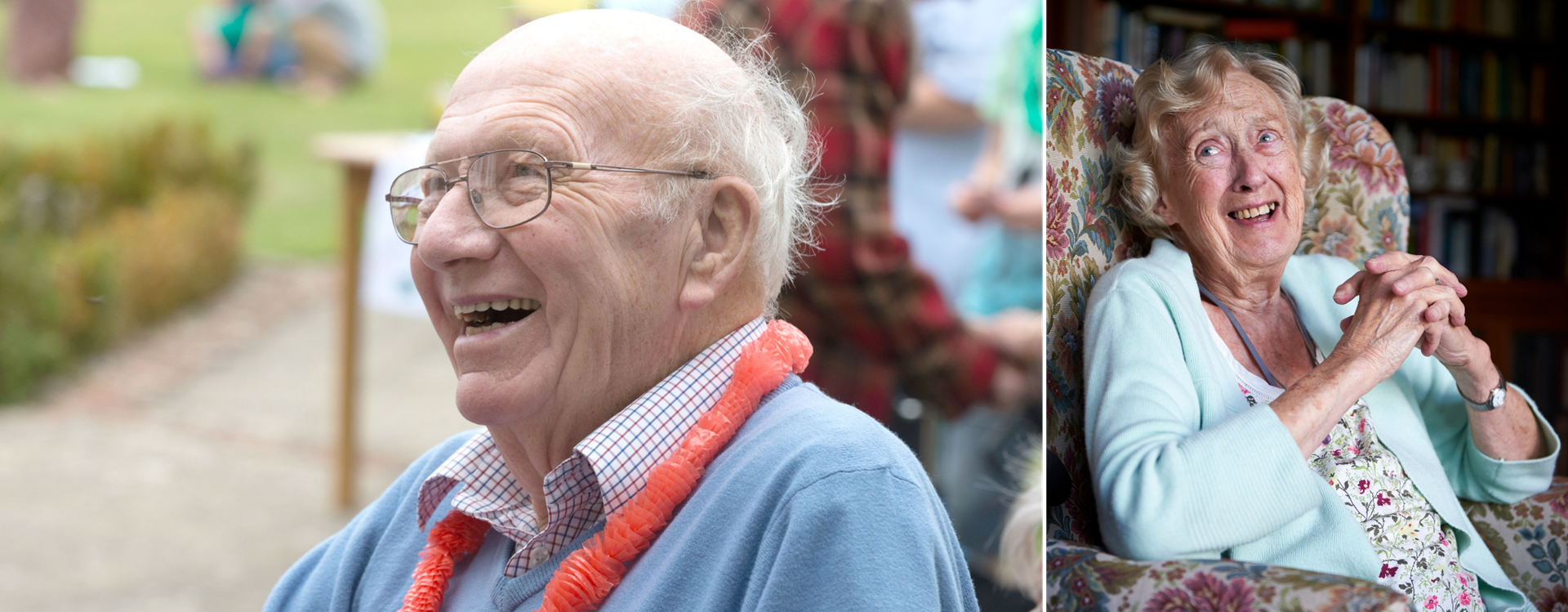The power of music – connections, wellbeing, and memories.
Music has been a part of our lives for centuries, around 40,000 years ago in fact, when early humans carved instruments from bone. It engages the brain and can help to improve the quality of life of older people in numerous ways.
Creating connections
Alleviating loneliness
Music connects us, but did you know listening to music alone can help with feelings of loneliness? Research on social music cognition revealed that listening to music alone can function as a form of social encounter and that listeners will think up a virtual social agent while engaging with well-known musical pieces and songs by themselves.
Building relationships
Music brings us together, helping to build meaningful relationships that can last a lifetime. Think of the national anthems that connect crowds at sporting events (like the Euros are right now!), love songs that partners sing to each other, hymns in places of worship and lullabies that allow parents and infants to form a bond like no other. There's nothing quite like a good sing-a-long with a close companion.
Sparks emotions
Music has the ability to spark powerful emotional responses in listeners, whether they're positive, or negative. However, positive emotions dominate musical experiences, and lead to the release of neurotransmitters associated with reward, such as dopamine. Listening to music is an easy way to alter your mood and relieve symptoms of stress, anxiety and depression.

Benefits on the body
Boosts physical performance
Keeping fit in later life is important, but it can be challenging for some. Simply adding a bit of music in the background whilst exercising can work wonders! Athletes and those who exercise regularly have long known that music enhances their physical performance. A 2020 research review on the effects of music in exercise confirms that exercising with music improves your mood, helps your body move efficiently, and cuts down on your awareness of exertion. Syncing your workout to music can allow you to reach peak performance, while using less oxygen than if you did the same workout, without the beat.
Decreases tiredness
Have you ever started a long-procrastinated task feeling tired, to then pop on your favourite songs and find your energy levels rise? Well, there’s actually a scientific reason behind that feeling. Music can help reduce feelings of tiredness and fatigue, and maintain muscle endurance when you are engaged in a repetitive task, like cleaning for example.
Aids pain and general health
Specialists use music to help reduce their patients level of pain, as it can help people manage both acute and chronic pain better than medication alone. The benefits of dancing are well documented too, plus it’s one of most fun ways to exercise. Listening to music can also alter your breath rate, heart rate and blood pressure, depending on the music’s intensity and tempo, helping you maintain good heart health too.

Easing the mind
Improves mental health
Music is proven to release the 'feel-good' chemicals your brain produces. When we listen to music, it’s often to match, alter or improve our mood. This triggers the release of several neurochemicals that play a role in brain function and mental health:
- Oxytocin, a chemical that allows us to connect with others
- Serotonin and other hormones related to immunity
- Dopamine, a chemical associated with pleasure and reward
- Stress hormones like cortisol
This proves that music has the power to change moods and help people better process their feelings. We can say with certainty that there is strong evidence of a link between music and mental wellbeing.
Promotes better learning
Music engages the brain and Doctors actually recommend that you listen to it. It activates both the left and right brain at the same time, and the activation of both sides can maximise learning. How do we know this? Scientists know that listening to music engages your brain as they can see the active areas light up in MRI scans – interesting, isn't it?
Evoking memories
There is no doubt that music and memories are connected. We already know that music sparks different emotions and with those emotions, a memory often follows. We all remember songs from our past; your wedding song, those amazing (or not so amazing) songs your parents danced along to, your first album and music that reminds us of the people who are important to us.
Music and the memories it evokes can have many benefits for those living with dementia, too. Old songs a person once sung and danced along to can help them to express their feelings better and connect with past memories, which may be easier to recall when living with dementia. It can also help to lift their mood, maintain speech and language and generally enhance their quality of life.
There are some amazing resources available for older people to enjoy music of all types. The BBC have their own Music Memories website, dedicated to help people reconnect with their most powerful memories and organisations like Playlist for Life, who are wholly dedicated to helping those with dementia, through the power of music. A device like an Amazon Echo can also be useful, you can simply asking 'Alexa' to play a song you enjoy and begin reminiscing.
What can we take from this?
Music has more benefits to your health and wellbeing than you may have thought, so we encourage you to listen to more music – enjoy it, and dance along if you can!